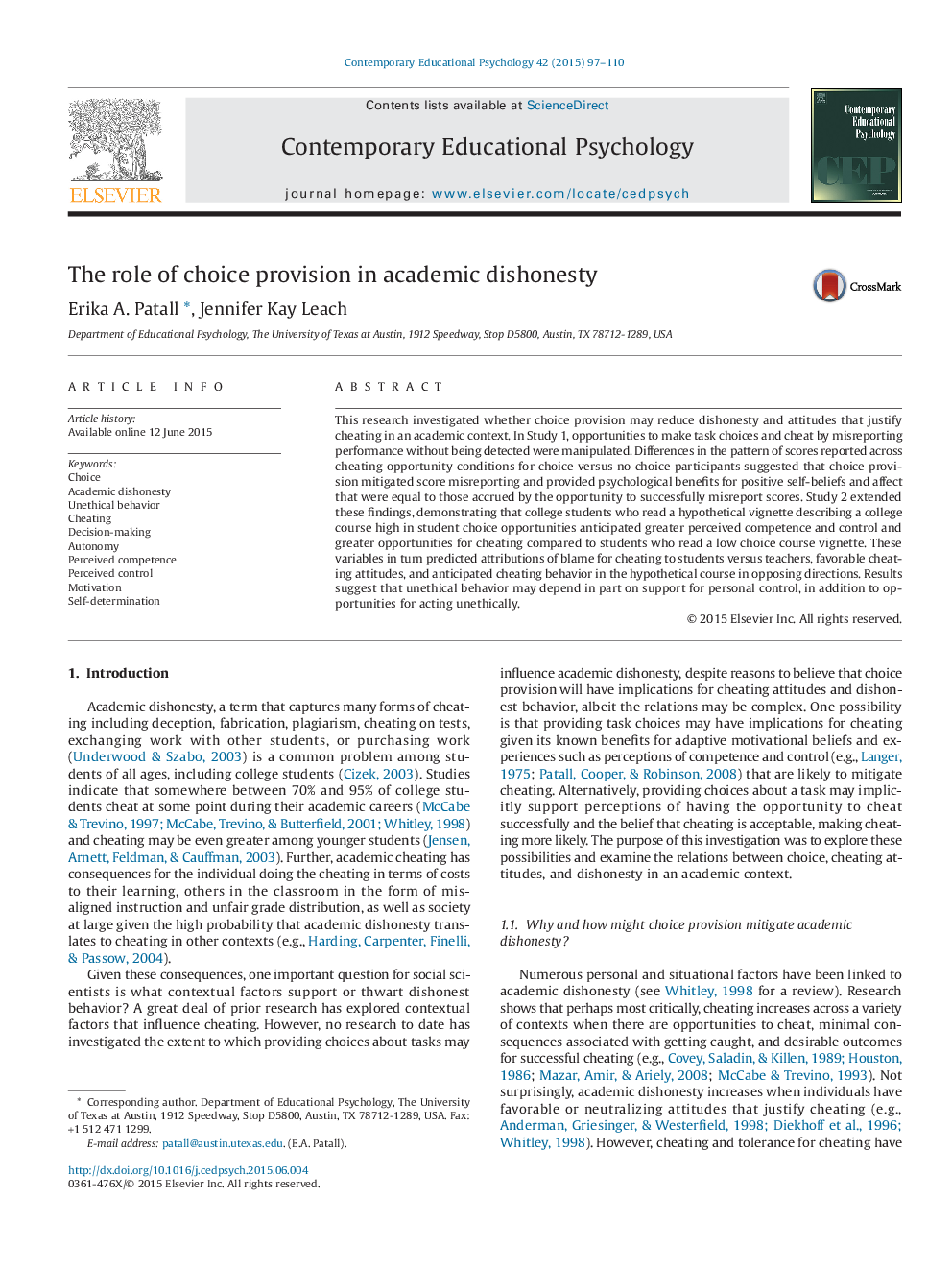| Article ID | Journal | Published Year | Pages | File Type |
|---|---|---|---|---|
| 352552 | Contemporary Educational Psychology | 2015 | 14 Pages |
•Two experiments tested the effect of choice provision on cheating outcomes.•Results confirmed that choice mitigates performance misreporting.•Choice provided similar psychological benefits to having the opportunity to cheat.•Choice affects anticipated cheating outcomes through opposing pathways.•Choice effects operate via perceived competence/control and cheating opportunity.
This research investigated whether choice provision may reduce dishonesty and attitudes that justify cheating in an academic context. In Study 1, opportunities to make task choices and cheat by misreporting performance without being detected were manipulated. Differences in the pattern of scores reported across cheating opportunity conditions for choice versus no choice participants suggested that choice provision mitigated score misreporting and provided psychological benefits for positive self-beliefs and affect that were equal to those accrued by the opportunity to successfully misreport scores. Study 2 extended these findings, demonstrating that college students who read a hypothetical vignette describing a college course high in student choice opportunities anticipated greater perceived competence and control and greater opportunities for cheating compared to students who read a low choice course vignette. These variables in turn predicted attributions of blame for cheating to students versus teachers, favorable cheating attitudes, and anticipated cheating behavior in the hypothetical course in opposing directions. Results suggest that unethical behavior may depend in part on support for personal control, in addition to opportunities for acting unethically.
